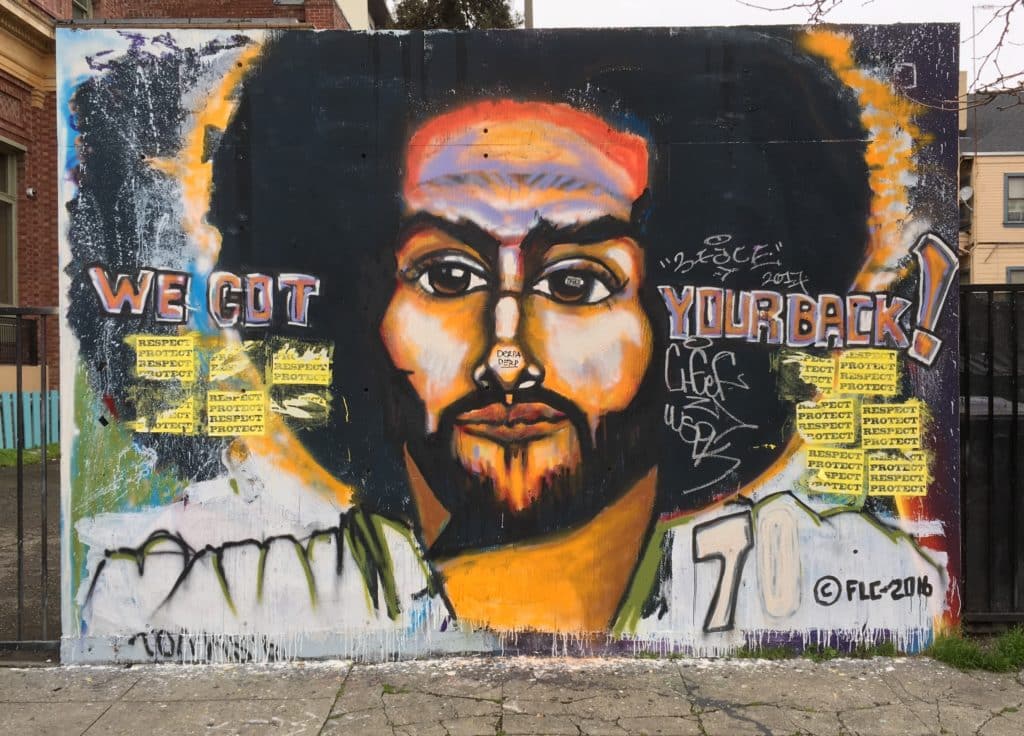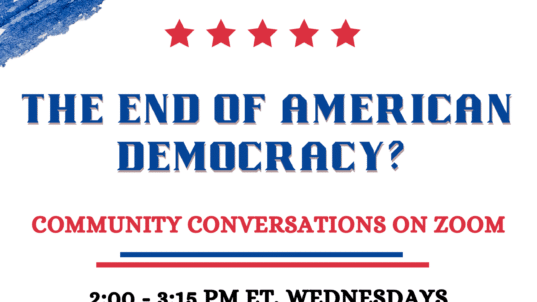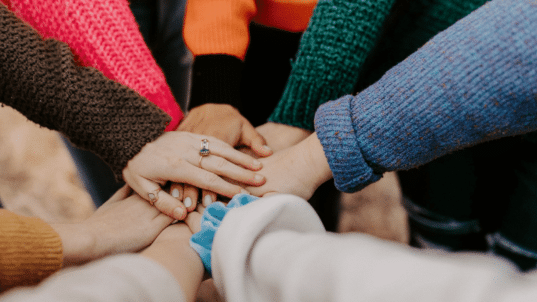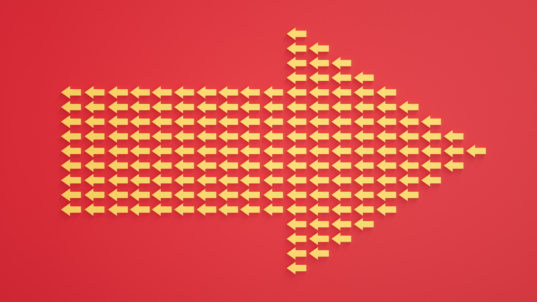
Kaepernik Mural, Oakland, by Stephen Coles (CC BY-NC-SA 2.0)
What’s the relation of sports and justice, both within sports and in the relation of sports to the overall society?
In the third of our four-part Community Conversation series, we explored equity or justice concerns both internal and external to sports. What are equity or justice concerns within sports? And what role, if any, do we think sports, or athlete activism, could or should play in addressing inequities and helping us become a more just society? You’ll find a summary of the group’s thoughts below.
Sports inherently depend on a sense of fair play, so it’s natural to see a connection to justice concerns. What spillover effects could there be from seeking fairness in sports to seeking fairness in society? Of course, there are paradoxes here. Sports and fitness can be powerful forces for liberation, yet athletes are often some of the most highly controlled individuals around. There’s a long history of sports and athlete activism pushing for a more just society. Some celebrate this (especially when such activism is safely in the past). Others say, “shut up and play.”
Please join us on Thursday, December 10 (1pm-2:15 pm eastern) for our concluding fourth community conversation: Sports and fitness—what future do we want? We’ll explore different visions for what we think would be an ideal future for sports, fitness, and society:
- If we stay on our current path, where do you think we’ll wind up in the future with sports and fitness activities?
- Ideally, what do you think the future of sports and fitness should look like?
- What could we build on now to get to a more ideal situation for sports and fitness?
Interested in a warm-up? You can review the notes from the first session, where we explored the many different ways sports and fitness have meaning for us as individuals and as a society. In our second session we explored the connections of sports and health, including the ways sports and fitness can boost our vitality personally and can boost the health of our communities. You might glean other ideas by reviewing this write-up of an earlier discussion project. This Community Conversation series is part of an ongoing collaboration with IONA Senior Services. Please register here.
Justice or equity concerns within sports?
Justice and consistency of rules
- There needs to be fair and consistent enforcement of rules of play within sports
- Rules on performance enhancing drugs need to be transparently and consistently enforced
- Competition creates incentives to push the boundaries of what is allowed—leading to doping or using other technologies to gain an unfair advantage
- Rules of play regarding things like equipment, technology, or performance enhancements, should be set in advance, not changed in the middle of competition
- People should be able to compete openly as what or who they are—without artificial enhancements or impediments
- The same athlete might be a hero or demon depending on whether they are found to be bending the rules
- Sports competitions should be buffered from political influence on fair play (e.g. Cold War experience of political impact on international competition, leading to unfair misapplication of the rules)
- Sports competitions where everyone gets a participation trophy are unjust in that they make real achievements meaningless (unfair to those who are truly excellent)
Justice concerns about access to sports participation
- There are justice concerns about access to sports opportunities and about who gets to play
- The demand of justice is to be fair to the greatest number of athletes by lowering the threshold for participation
- Everyone would benefit if we maximized opportunities for sports participation, since the population would be healthier
- We could build public sports infrastructure to remove financial and other barriers to sports participation
- We could focus on expanding sports that require the least financial investment and offer the greatest opportunity to expand access for more of the population
- We could design communities to include public space for sports to maximize access to participation
- There will be injustice whenever money is involved: if sports participation depends on financial status, then it will just perpetuate and add to economic inequalities
- Focusing on the commercialization and professionalization of sports leads to growing inequalities—it’s very expensive to become and remain an elite athlete
- Clubs and other voluntary associations could be a way to expand access to sports participation
- There are racial inequities in access to sports opportunities
- There are inequities in who gets to play based on friendships or prior relationships with coaches or team officials
Justice concerns around sex and gender
- There are inequitable opportunities for sports participation for women and girls, with gender restrictions on particular sports and for sports in general
- Sex segregation for sports leads to inequities, especially for women and girls
- In some countries, women and girls are even restricted from being sports spectators
- There is generally inequitable payment for female athletes and inequitable funding for women’s and girls’ sports
- There is some improvement with increasing opportunities for female athletes, but the opportunities lag behind those for men (it took a long time to get the WNBA etc.)
- There is some improvement of encouraging women and girls to be more athletic and take part in sports for health reasons
- The market and fandom for women’s sports is expanding, with an increasing quality of competition
- Sports fandom is often a place where people feel comfortable expressing sexist and other unjust sentiments
- There are justice concerns about how intersex and trans athletes are treated
- There is the injustice of enforcing outdated or misguided sex or gender standards on athletes
- It is wrong to require an athlete to alter her body in order to compete
- We need to expand and update our notion of femininity to embrace athleticism (people used to say athletic women’s bodies were “unladylike”)
- There are justice concerns about the risks of physical and sexual abuse within sports (e.g. by coaches or staff in college sports)
Justice concerns about exploitation
- There are justice concerns about who profits from sports, who pays for them (financially and physically), and who subsidizes them
- The injustice of big-time college sports: the coaches make so much money and the players are essentially unpaid and risking their bodies
- The injustice of professional sports depending on public subsidies for funding arenas, etc., when localities can’t or won’t fund sports opportunities for the poorest citizens
- The injustice of athletes risking and sustaining great injury and enduring bodily harm (consider the effects of brain injuries in football) largely for the entertainment and profit of others
- This injustice is especially compounded in college sports, where the athletes are barred from profiting from their efforts
What role could or should sports play in leading toward a more just society?
Sports as an engine for equity and social cohesion
- Sports can be a training ground for justice—“being a good sport” (“good sportsmanship”) is an embodiment of justice (and “poor sportsmanship” is a form of injustice)
- People, starting as youth, need to be educated for good sportsmanship, including learning how to lose with grace
- Parents are often a bad example (tending to be poor sports)—they need to be educated too
- What if competitive sports inherently foster injustice by perpetuating a zero-sum mindset that discourages the collaborative spirit that is essential for a just society?
- Sports competitions create an opportunity for rivals and their fans to come together peacefully and to acknowledge the highest forms of human athleticism
- Sports can be a healing and uniting force in communities, where people come together from different backgrounds and unite behind their team
- A nation can come together behind a team, fostering social cohesion and helping the society become more just (e.g. Mandela and the national rugby team)
- Sports can be a healing and uniting force in the world, if the competitions are administered fairly
- International sports can bring people together across national boundaries to recognize the athletic greatness without concern for the national affiliations of the athletes
Athlete activism
- Sports teams can be some of the most racially integrated parts of our society, so it makes sense that they would be at the forefront of working for a more racially just society
- Justice is always something you have to fight for—and athletes know what it is like to work hard for their goals
- How hard do you want the reward of justice? You may have to go against the rules or push to change them to aim for justice
- Athletes should be able to speak up and take a stand against injustices without facing retributions from their team or leagues (so long as they’re not part of the executive leadership of the team)
- Athletes may never really have had full free speech rights, because their team or coach could always take opportunities away (it’s not the government acting against them)
- Sports teams played a role in promoting justice by using their arenas as voting sites
- Sports boycotts and protests for Black Lives Matter had a positive impact for racial justice
- Some want sports as a refuge from social and political concerns—a form of escapism



